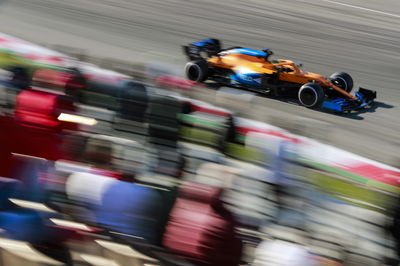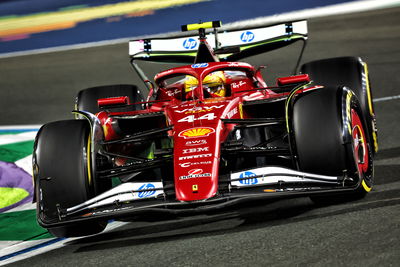Mercedes helps create breathing aid in under a week
Mercedes has teamed up with University College London to produce a breathing aid that is less invasive than a ventilator and is hoped to keep patients with coronavirus out of intensive care.
Following the Formula 1 shutdown and indefinite delay to the start of the 2020 season amid the coronavirus pandemic, the seven British F1 teams have responded to calls from the UK government to help develop and deliver life-saving equipment including ventilators.

Mercedes has teamed up with University College London to produce a breathing aid that is less invasive than a ventilator and is hoped to keep patients with coronavirus out of intensive care.
Following the Formula 1 shutdown and indefinite delay to the start of the 2020 season amid the coronavirus pandemic, the seven British F1 teams have responded to calls from the UK government to help develop and deliver life-saving equipment including ventilators.
Less than one week on, Mercedes F1 engineers have been working with University College London engineers and clinicians at its hospital operations to build a device which provides oxygen to the lungs without needing a ventilator.
The device – called Continuous Positive Airway Pressure (CPAP) – are already in short supply in hospitals and have been used in both China and Italy to treat coronavirus patients. The device will be used on patients who do not require immediate intensive care and free up facilities for more critical patients being treated by the NHS.
Trials have already started with 40 of the CPAP devices at University London College Hospital plus three others given to other London hospitals. If the trial is a success, Mercedes plans to produce up to 1,000 devices per day at its High Performance Powertrain factory in one week’s time.
The device has already received approval to use by the Medicines and Healthcare product regulatory agency.
UCLH critical care consultant Professor Mervyn Singer told the BBC: “These devices are a halfway house between a simple oxygen mask and invasive mechanical ventilation which requires patients to be sedated.
“They will help to save lives by ensuring that ventilators, a limited resource, are used only for the most severely ill.”
Andy Cowell, Mercedes High Performance Powertrains managing director, added: “The Formula 1 community has shown an impressive response to the call for support. We have been proud to put our resources at the service of UCL to deliver the CPAP project to the highest standards and in the fastest possible timeframe.”
The collaboration also included Oxford Optronix, a business that has manufactured oxygen monitors for the devices.
Elsewhere, a consortium of UK firms have pooled resources to manufacturer medical ventilators for the NHS, including Airbus, BAE Systems, Ford, Rolls-Royce and Siemens. The plan is to begin production next week after gaining approval from the regulatory body.











